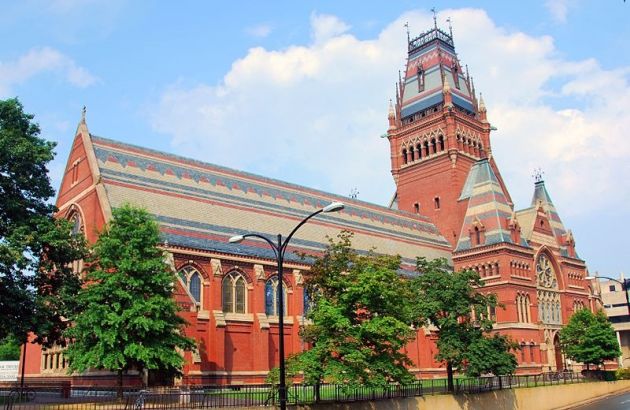Harvard University elects head chaplain who does not believe in God with backing of evangelical pastor

The man elected as chief chaplain at Harvard, Greg Epstein, does not believe in God, but he got the backing of an evangelical pastor.
He will serve a university founded in 1636 to train Protestant clergy with the choice drawing some flak over twitter, but acceptance at the oldest institution of higher education in the United States.
"The Puritan colonists who settled in New England in the 1630s had a nagging concern about the churches they were building: How would they ensure that the clergymen would be literate?," The New York Times reported on Aug. 26.
"Their answer was Harvard University, a school that was established to educate the ministry and adopted the motto 'Truth for Christ and the Church.' It was named after a pastor, John Harvard, and it would be more than 70 years before the school had a president who was not a clergyman."
For its first 70 years, the university did not have a president who wasn't a clergyman.
The appointment is sure to strike a nerve, with some already taking to Twitter to express confusion or outright dissatisfaction with the appointment, Fox News reported.
Evangelist Franklin Graham (@Franklin_Graham) took to Twitter saying "Why would @Harvard — or any other university — hire a head chaplain who doesn't even believe in God?"
A person using the handle, The Panda Detective (@DaveyCLand), tweeted, "It sounds like a grift. At the very least it shows that Harvard regards atheism as a more than suitable alternative to religious belief. No surprise there, but they have deprived the students of a legitimate chaplain."
The Mail Online ran a subhead saying, "Ivy League school says it's catering to the 40% of students who are NOT religious or agnostic."
HUMANIST CHAPLAIN
Epstein has been Harvard's "humanist chaplain" since 2005 and is the author of the bestselling book "Good Without God: What a Billion Nonreligious People Do Believe."
He will lead a group of more than 40 chaplains who represent some 20 different religions and beliefs including Christianity, Islam, Judaism, Sikishm, Hinduism and Buddhism.
His appointment comes as young people in the United States increasingly identify as spiritual but without a religious affiliation.
"There is a rising group of people who no longer identify with any religious tradition but still experience a real need for conversation and support around what it means to be a good human and live an ethical life," Epstein, who was raised in a Jewish household, told The New York Times.
"We don't look to a god for answers," he added. "We are each other's answers."
Margit Hammerstrom, the Christian Science chaplain at Harvard told the Times, "Maybe in a more conservative university climate there might be a question like 'What the heck are they doing at Harvard, having a humanist be the president of the chaplains?'
"But in this environment, it works. Greg is known for wanting to keep lines of communication open between different faiths."
In 2005, Epstein received ordination as a Humanist Rabbi from the International Institute for Secular Humanistic Judaism.
He holds a B.A. (Religion and Chinese) and an M.A. (Judaic Studies) from the University of Michigan, Ann Arbor, and a Masters of Theological Studies from the Harvard Divinity School, and he completed a year-long graduate fellowship at the Hebrew University of Jerusalem, the Mail Online reported.
Pete Williamson an evangelical pastor wrote in Christianity Today why he voted for Epstein to get the post.
"For seven years, I have worked at Harvard as an evangelical campus minister employed by InterVarsity Christian Fellowship (IVCF). I believe the Bible is authoritative and entirely trustworthy as God's Word.
"I believe that Jesus alone is the way of salvation, and that no one comes to the Father except through him. So why would I vote for an atheist to lead the Harvard Chaplains?"
He said that in
n Harvard's particular case, going back just a few decades, evangelicals were largely excluded from religious life on campus. The group that preceded the Harvard Chaplains was restricted to mainline Protestant church ministers.
"In that historical context, we evangelicals are beneficiaries of Harvard's newfound desire for diverse religious representation." said Williamson.